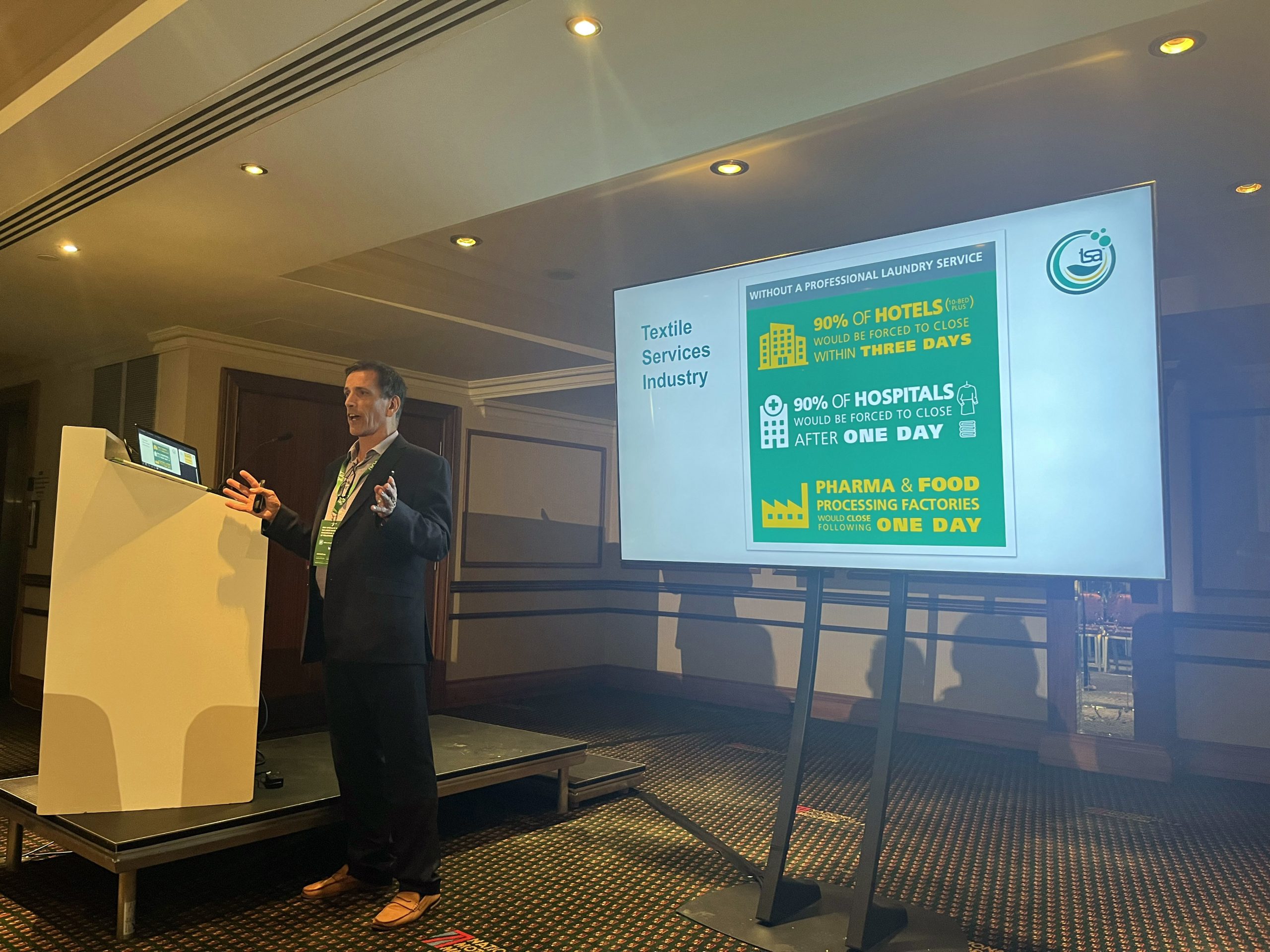The TSA plans campaign to improve sustainability
The NHS loses over 80% of its linen every year. It’s a massive drain on resources and very much against sustainability targets. Now the TSA (Textile Services Association) is working with the NHS to put together a programme to help reduce the level of wastage.
Around 90% of the NHS’s linen, which includes bed sheets, pillowcases, and surgical gowns, is actually owned by commercial laundries, so TSA members are acutely aware of the wastage issue – and the stats. Typically a laundry will supply the linen, collect it when dirty, then sort it, wash it, repair or replace it if required, and then return it. The NHS losses amount to 4 million pieces of linen, which equates to 7,600 tonnes of carbon. It’s not just the textiles that are lost – to manufacture those 4 million lost pieces will have taken 24 billion litres of water, the equivalent of around 300 million full bathtubs.
“It’s a massive problem and a big black mark against the NHS’s own sustainability targets,” says David Stevens, CEO of the TSA. “A key issue is getting NHS staff to understand the value of the linen they use – a lot of the losses are due to misuse. For example, they shouldn’t be using bed linen to clean things or mop up spills.”
In conjunction with the NHS, the TSA is putting together training resources to help staff understand the value of linen and to explain what good (and bad) practice looks like. One poster shows how to make linen last longer, listing the types of stains that can render the textile unusable.
Another key issue the TSA is focusing on is disposable vs reusable gowns. “The sustainability argument is cut and dried,” says Stevens. “A disposable gown can be used once, reusable gowns can be used 70 or more times, which makes them both economically and environmentally the best choice. At end of life, disposable gowns have to be disposed of, whereas reusable ones can be recycled.” While around 30% of NHS estate uses reusable surgical gowns, this still leaves significant numbers that don’t.
Stevens presented the TSA’s ideas at the recent Healthcare Facilities Management Conference. “The feedback we have had from NHS bosses has been very positive,” he says. “We are working with them to find the best way to educate and change attitudes, with the aim of delivering a more sustainable linen service for the NHS.”
The TSA is the trade association for the textile care services industry. The TSA represents commercial laundry and textile rental businesses. Membership ranges from family-run operations through to large, multi-national companies. Visit www.tsa-uk.org for more information.

